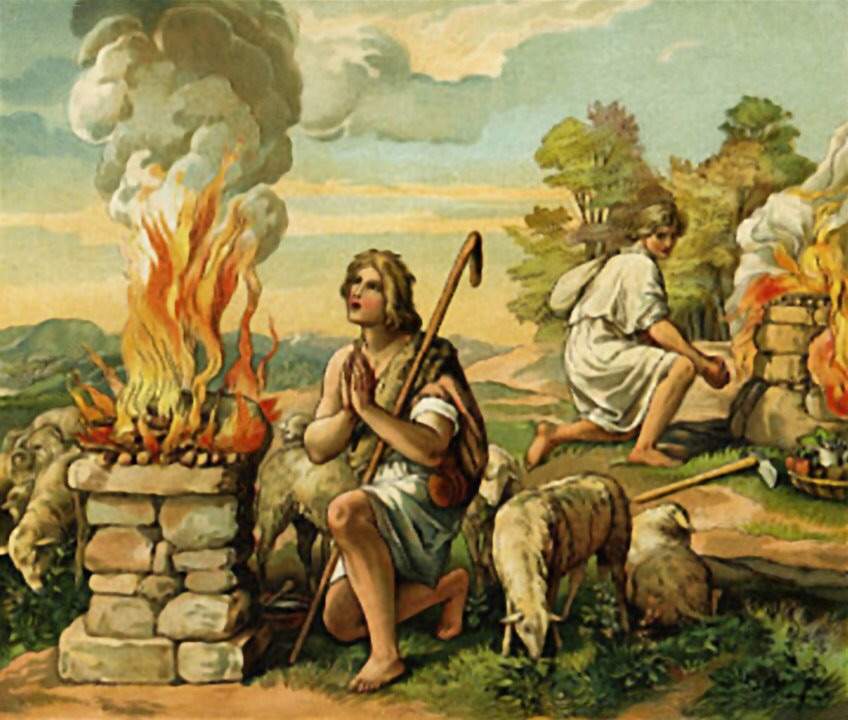
by Br. Jesus Matias, ofs
The story of Cain is not a fairy tale, not an enticing subject for a children’s Bible story. It is all about the first murder. But it is a story with a twist, a lesson so important in our present time.
We have ‘condemned’ Cain as the ‘bad example’ we would never dare become. For us, Cain is a moral impossibility: “I will never be like Cain!” we say with boastful conviction. And as for Abel? He is the victim of the ‘sinners,’ perhaps a mirror of ourselves suffering in the hands of evil.
But we must see the fate of Cain going beyond the mere loss of self-control over mere jealousy, of perfection over imperfections, of honesty over dishonesty. In fact, this is as much as we know about these two unfortunate brothers.
The drama unfolds with the offering of Cain from the fruits of his farming, and then the offering of Abel from the fruits of his sheep-tending. Then God exhibits clearly contrasting attitudes towards the two offerings: was there anything wrong with Cain’s offering, or are there any indications that differentiated it from Abel’s offering, that would earn much displeasure for the former? Scriptures do not tell us why, and so it may be incorrect to conclude that Cain was seen as less than Abel’s exemplar, and much more incorrect to say that Cain was deliberately dishonest. Cain may perhaps be well be Abel’s equal in terms of ability and moral understanding. He may be just as good a farmer as Abel is a shepherd and may have similar genuine motives in trying to please God.
Why God would choose Abel over Cain, will remain a mystery forever in the divine mind, but we may comprehend that evil intentions and evil desires do not simply spring from intrinsic evil; it may come from intrinsic goodness. Evil actions result from the lack of control of such inordinate intentions and desires with the self-rationalization that evil actions serve the ‘greater good’.
We thus have to be aware that we have a ‘Cain’ in all of us, no matter how ‘good’ we see ourselves to be. We will have to confront circumstances which we feel we do not deserve, and under such conditions, the concepts of good and evil become blurred. The evil that we do is our frail attempt to seek correction for an unfortunate injustice, a ‘good’ that we seek to regain even if it means hurting another. Evil may be seen as good, but the key to self-control is to be reminded that evil will always be evil. Evil will not go unpunished.
Do we steal to rebel against our undeserved poverty? Are we adulterers because of undeserved loneliness? Do we lie and cheat because of undeserved inequalities? Are we addicts or killers because of undeserved angst and despair? Cain reminds us that there is no sin great enough that is beyond our ability to commit.
God shows us however, that there is no sin great enough that is beyond his mercy and compassion. Ever proud, we seek to punish those who are ‘not as good as we are’. We seem to think that we can appropriate his justice for ourselves. His boundless mercy is a sign that we are all ‘thieves, adulterers, liars, addicts and killers’ – we are not as strong as we think we are.
We cannot do our own justice, it is sorely inadequate to the perfect justice of the Spirit. Those who have fallen miserably in the eyes of our social constructs, still deserve to live, for who among us has not fallen? He who has not sinned, may cast the first stone.
God protects the fallen with the mark of Cain. He who hurts what God protects, will have to answer to the most High.











